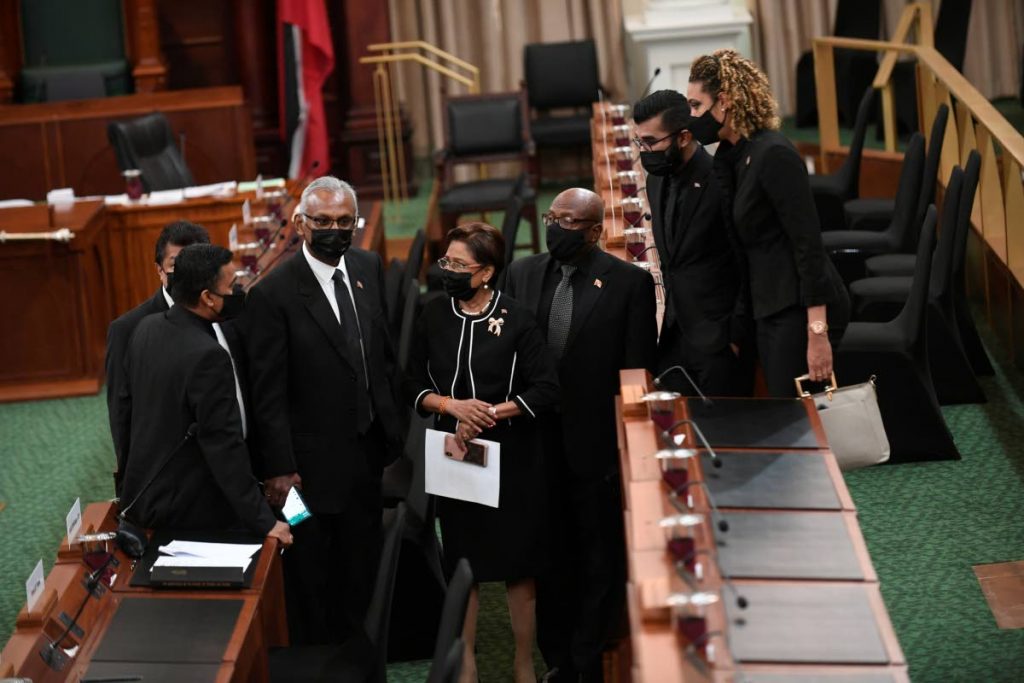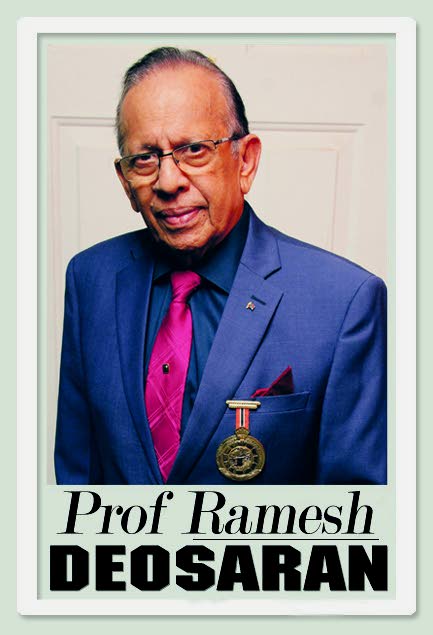Political chaos in motion

Opposition Leader Kamla Persad-Bissessar’s motion to impeach President Paula-Mae Weekes predictably failed in the Electoral College by a 47-24 vote.
There will be no tribunal to inquire into the allegations.
Backed by thunderous desk-thumping, Ms Persad-Bissessar quarrelled with Speaker Bridgid Annisette-George, who ruled that there be no debate over her firecracker, unprecedented motion. This motion was talk of the town for weeks, becoming an overnight lesson on how to fire a president.
At a press conference minutes after the vote, the Prime Minister, unleashing an attack on Ms Persad-Bissessar’s “over-reach,” vociferously defended the president. And with fighting spirit, the Opposition Leader, quite upset at the Speaker’s rulings, declared: “This is a war on democracy.” There was shouting and heavy desk-thumping, with the Speaker getting frustrated.
My eyebrows were raised when the senators were called in to “vote on the motion.” With tactful query, UNC senators asked, “Which motion?” Noisy desk-thumping. They claimed they “did not hear the motion” since they had just come in. Good point. Some amendment seems needed here. In Parliament, Ms Persad-Bissessar based her motion largely on the Constitution (Section 36) which states: “The president may be removed from office where (a) he (or she) wilfully violates any provision of the Constitution (b) he behaves in such a way as to bring his office into hatred, ridicule or contempt (c) he behaves in a way that endangers the security of the State, or (d) because of physical or mental incapacity, he is unable to perform the functions of his office.”
She argued that the President contributed to the collapse of the Police Service Commission and in an “unconstitutional manner,” mishandled a “merit list” for an acting police commissioner.

In a striking advertised defence, the President said: “I confirm that an Order of Merit List in respect of the Commissioner of Police was delivered on August 11, 2021 to the Office of the President and withdrawn almost immediately thereafter that day.” And this is where the mystery seems to arise. What does “was delivered” mean? Why exactly did PSC chairman Bliss Seepersad withdraw her list? Why do it in the meeting with the President?
Given my persistent concern over the urgent need for a review of the PSC structure and functions, I found interest in the President’s advertised list of five questions:
(1) Should credible information be sent to the PSC so as to help it in its constitutional functions?
(2) How and who should determine the threshold for consideration?
(3) Should Parliament be the body to receive such information, especially if there are matters of sensitive national security, or should it be the PSC?
(4) Is providing such information “interference” in the PSC operations?
(5) Would “unsolicited” information compromise the PSC’s independence? Does the source matter?
Such questions, the convoluted function of the PSC and the expensive ambiguities over Legal Notice 183 of 2021 all call for urgent reform of the PSC.
The PSC roundabout process of appointment – sending the PSC list to the President, who then sends it to Parliament, then debate takes place, etc, raises a question: what happens if the CoP suddenly falls ill, or is absent for just a few days?
Would the PSC have the time to deliberate over an acting appointment, then send its list to the President, who then sends it to Parliament for debate, etc? Suppose the first nomination is rejected? Reform is required for practical reasons.
Then again, the Prime Minister, leader of government, is required to say whether or not his government (by majority) approves or disapproves the PSC nomination. It ought to be made clear that the PM, in particular, is entitled to make judicious inquiries of his own in order to make a reasonable and objective judgement. He cannot just jump up and say yes or no to one or another nomination. He must provide justifiable reasons.
What has helped contribute to some of the confusion and expensive litigation is that the administrative and legislative framework of the PSC is just not fit for purpose.
Now that the impeachment storm is over, I refer to the President’s advice two weeks ago. She said: “I raise these questions in the hope that this whole unhappy and regrettable course of events provides a platform for critical discussions leading to viable solutions, including perhaps, constitutional reform.”


Comments
"Political chaos in motion"